Prof Helen Boston, University of Liverpool, United Kingdom
Dr Jacobus Diener, Botswana International University of Science and Technology, Botswana
Dr Innocent Lugendo, University of Dar es Salaam, Tanzania
Dr Julian Ogondo, Maseno University, Kenya
Ms Edzani Ratsibi, South African Nuclear Energy Corporation (NECSA)
Dr Mojisola Usikalu, Covenant University, Nigeria
Dr Stephan Woodborne, iThemba LABS, South Africa
Download Keynote Speakers Flyer
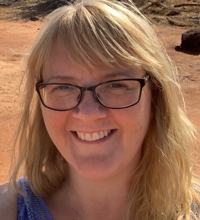 Prof. Helen Boston obtained a PhD in experimental nuclear physics from the University of Liverpool in 2001. Helen then spent a number of years at TRIUMF, Canada, as a research scientist researching super allowed beta decays and nuclear spectroscopy using the 8Pi, GPS, SPECTAR and TIGRESS arrays. She returned to Liverpool to take up a position in the Nuclear Physics group leading research into novel detector designs for a broad range of applications such as medical imaging, security environmental assaying and nuclear decommissioning. A number of these projects involved industrial partners such as NNL and Mirion Technologies. Alongside her research she is also the PGT programme director for Clinical Sciences in Medical Physics and Bioinformatics, forging links with Health Education England and the National School of Healthcare Science to educate the future workforce and leaders of the NHS.
Prof. Helen Boston obtained a PhD in experimental nuclear physics from the University of Liverpool in 2001. Helen then spent a number of years at TRIUMF, Canada, as a research scientist researching super allowed beta decays and nuclear spectroscopy using the 8Pi, GPS, SPECTAR and TIGRESS arrays. She returned to Liverpool to take up a position in the Nuclear Physics group leading research into novel detector designs for a broad range of applications such as medical imaging, security environmental assaying and nuclear decommissioning. A number of these projects involved industrial partners such as NNL and Mirion Technologies. Alongside her research she is also the PGT programme director for Clinical Sciences in Medical Physics and Bioinformatics, forging links with Health Education England and the National School of Healthcare Science to educate the future workforce and leaders of the NHS.
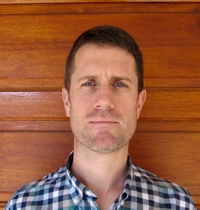 Dr Jacobus Diener is a PhD (Physics) graduate from Stellenbosch University, South Africa. After a postdoctoral fellowship at the National Institute for Theoretical Physics, he joined the Department of Physics and Astronomy at BIUST in 2016.
Dr Jacobus Diener is a PhD (Physics) graduate from Stellenbosch University, South Africa. After a postdoctoral fellowship at the National Institute for Theoretical Physics, he joined the Department of Physics and Astronomy at BIUST in 2016.
His research interests are the thermodynamics of dense and highly magnetized neutron and neutron star matter and its application to the neutron star interior.
He also has a keen interested in education and is currently researching ways to improve students’ conceptual understanding in Physics.
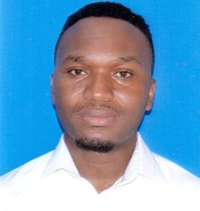 Dr. Innocent J. Lugendo is a Lecturer of Physics, a Researcher and Consultant in the fields of Nuclear Physics and Nuclear Technology. He currently serves as the Academic and Manager of the Central Science Workshop at the University of Dar es Salaam where he has been a faculty member since September 2009. Dr. Lugendo holds a Ph.D. in Nuclear Physics with specification in Nuclear Structure and Radiation Detectors. His research interests lie within Nuclear Technologies including Radiation Detectors, Nuclear Analytical Techniques, Medical Imaging and Radiotherapy. He has been is supervising various PhD and MSc research projects. Currently, he is participating in an International Collaboration that is developing a new “Small Animal PET Imaging Scanner”.
Dr. Innocent J. Lugendo is a Lecturer of Physics, a Researcher and Consultant in the fields of Nuclear Physics and Nuclear Technology. He currently serves as the Academic and Manager of the Central Science Workshop at the University of Dar es Salaam where he has been a faculty member since September 2009. Dr. Lugendo holds a Ph.D. in Nuclear Physics with specification in Nuclear Structure and Radiation Detectors. His research interests lie within Nuclear Technologies including Radiation Detectors, Nuclear Analytical Techniques, Medical Imaging and Radiotherapy. He has been is supervising various PhD and MSc research projects. Currently, he is participating in an International Collaboration that is developing a new “Small Animal PET Imaging Scanner”.
He has also published in many high-impact journals and conferences. Dr. Lugendo is a leader of the Nuclear Physics Research Group at the University of Dar es Salaam. He is also leading a special program for encouraging young boys and girls to learn Physics and other STEM subjects. He participates in many Nuclear Physics related programs within Tanzania and abroad. For instance, he is the IAEA contact person for the International Nuclear Security Education Network (INSEN) at UDSM. He is also committed to teaching about Nuclear Physics, Nuclear Technology and Nuclear Security to anyone who is interested
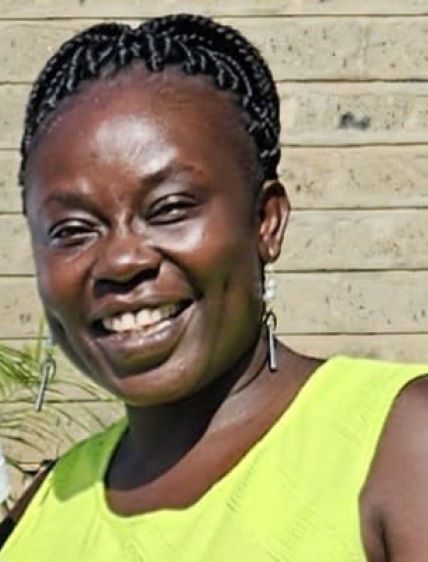 Dr. Julian Awuor Ogondo-Odhiambo is a Registered Geologist and Lecturer at South Eastern Kenya University. She holds a BSc. and MSc. in Geology from the University of Nairobi and completed Environmental Science specializing in Palaeoclimates and Palaeoenvironments at Maseno University. Dr. Ogondo-Odhiambo has extensive experience in academia, previously serving as an Assistant Lecturer at Maseno University and holding positions at the National Museums of Kenya, including Head of the Geology Section. She has received numerous awards and scholarships for her academic achievements, including grants for research and scholarships for doctoral studies. Her research interests include human impacts on the environment, Quaternary geology, palaeoclimatology, and micropaleontology. Dr. Ogondo-Odhiambo has participated in various field projects and professional experiences, including the Lake Victoria Drilling Project and collaborative research on the Quaternary archaeology and environments of Rusinga and Mfangano Islands. She has presented and published extensively in conferences, workshops, journals, and reports, contributing significantly to the field of geology and environmental science.
Dr. Julian Awuor Ogondo-Odhiambo is a Registered Geologist and Lecturer at South Eastern Kenya University. She holds a BSc. and MSc. in Geology from the University of Nairobi and completed Environmental Science specializing in Palaeoclimates and Palaeoenvironments at Maseno University. Dr. Ogondo-Odhiambo has extensive experience in academia, previously serving as an Assistant Lecturer at Maseno University and holding positions at the National Museums of Kenya, including Head of the Geology Section. She has received numerous awards and scholarships for her academic achievements, including grants for research and scholarships for doctoral studies. Her research interests include human impacts on the environment, Quaternary geology, palaeoclimatology, and micropaleontology. Dr. Ogondo-Odhiambo has participated in various field projects and professional experiences, including the Lake Victoria Drilling Project and collaborative research on the Quaternary archaeology and environments of Rusinga and Mfangano Islands. She has presented and published extensively in conferences, workshops, journals, and reports, contributing significantly to the field of geology and environmental science.
 Ms Edzani Ratsibi works at Necsa as a Reactor Utilization Supervisor for SAFARI-1 Research Reactor. Ms Ratsibi has a background in Physics, Material Science, and Science and Technology studies, she holds a BSc degree in Applied Physics (UKZN), an MSc degree in Physical Science (UWC), and an MPhil in Science and Technology Studies (SU) with focus on Science Communication. Ms Ratsibi has been actively involved in the communication of nuclear science and technology with keen interest of non-power applications of nuclear energy.
Ms Edzani Ratsibi works at Necsa as a Reactor Utilization Supervisor for SAFARI-1 Research Reactor. Ms Ratsibi has a background in Physics, Material Science, and Science and Technology studies, she holds a BSc degree in Applied Physics (UKZN), an MSc degree in Physical Science (UWC), and an MPhil in Science and Technology Studies (SU) with focus on Science Communication. Ms Ratsibi has been actively involved in the communication of nuclear science and technology with keen interest of non-power applications of nuclear energy.
Ms Ratsibi has participated in various trainings and workshops within the nuclear space such as IAEA/ICTP Nuclear Knowledge Management School, Regional Meeting on Safety Assessment Culture and many others. She is also an IAEA/ICTP International School on Nuclear Security (ISNS) alumni, participated in 2019.
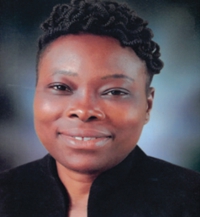 Dr. Mojisola Usikalu graduated from Federal University of Technology, Akure with B.Tech Degree in Physics and M.Tech Degree in Radiation and Health Physics in 2001 and 2005 respectively. She earned a PhD from Covenant University, Ota in 2010. Her current research centers on the effect of radiation on biological materials, determination of radioactivity levels and its implication on health, environmental forensic etc. She is a corporate member of Nigerian Institute of Physics, Health Physicists, Nigerian Union of Radio Science and Nigeria Young Academy. She received Third World Organization for Women in Science (TWOWS) postgraduate sandwich fellowship, Junior Associate Award of Abdus Salam International Center for Theoretical Physics, TWAS-UNESCO Associateship award utilized at the iThemba Labs SA (2015)
Dr. Mojisola Usikalu graduated from Federal University of Technology, Akure with B.Tech Degree in Physics and M.Tech Degree in Radiation and Health Physics in 2001 and 2005 respectively. She earned a PhD from Covenant University, Ota in 2010. Her current research centers on the effect of radiation on biological materials, determination of radioactivity levels and its implication on health, environmental forensic etc. She is a corporate member of Nigerian Institute of Physics, Health Physicists, Nigerian Union of Radio Science and Nigeria Young Academy. She received Third World Organization for Women in Science (TWOWS) postgraduate sandwich fellowship, Junior Associate Award of Abdus Salam International Center for Theoretical Physics, TWAS-UNESCO Associateship award utilized at the iThemba Labs SA (2015)
She is one of the recipients of Elsevier Foundation Award for Early Career Women in Physics and Mathematics, among other scholarly accolades. She is a member Editorial Board for a number of local and international journals. Usikalu has served as an External Examiner for MSc dissertations and PhD theses in some universities and served as Professorial Assessor for Professorial candidates. She has supervised over several B.Sc, M.Sc and Ph.D projects. She has several publications in many reputable journals and conferences.
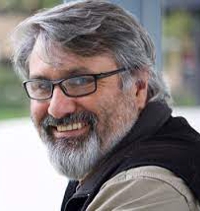 Dr. Stephan Woodborne is the Senior Accelerator Mass Spectrometry Scientist at iThemba LABS (Laboratory for Accelerator Based Sciences), Associate Professor at the Mammal Research Institute at the University of Pretoria, and is a research associate at the University of the Witwatersrand. He uses applied particle physics techniques to address socio-economic and ecological responses to climate change and has 23 years of experience in radiocarbon dating and stable light isotope analyses. He provided chronological dates in partnership with most of the archaeological programs in South Africa, and his personal research in palaeo-science includes reconstructing atmospheric 14C levels over the last 50 000 years, and the generation of past rainfall records from isotope analysis of tree rings. His palaeoclimate datasets are used to test climate change models. In addition he has done extensive work on ecological processes relating to the hydrological and nutrient cycles in savanna systems, with ongoing programs in crocodile and river ecology. He has published more than 100 peer reviewed journal articles and book chapters.
Dr. Stephan Woodborne is the Senior Accelerator Mass Spectrometry Scientist at iThemba LABS (Laboratory for Accelerator Based Sciences), Associate Professor at the Mammal Research Institute at the University of Pretoria, and is a research associate at the University of the Witwatersrand. He uses applied particle physics techniques to address socio-economic and ecological responses to climate change and has 23 years of experience in radiocarbon dating and stable light isotope analyses. He provided chronological dates in partnership with most of the archaeological programs in South Africa, and his personal research in palaeo-science includes reconstructing atmospheric 14C levels over the last 50 000 years, and the generation of past rainfall records from isotope analysis of tree rings. His palaeoclimate datasets are used to test climate change models. In addition he has done extensive work on ecological processes relating to the hydrological and nutrient cycles in savanna systems, with ongoing programs in crocodile and river ecology. He has published more than 100 peer reviewed journal articles and book chapters.
